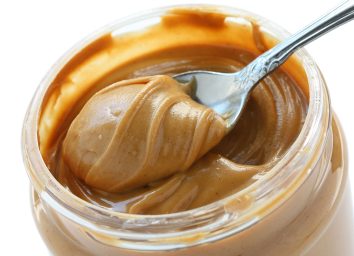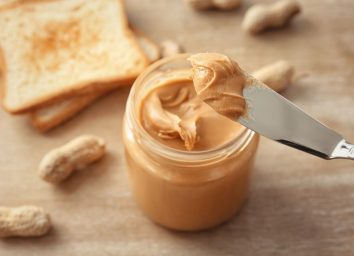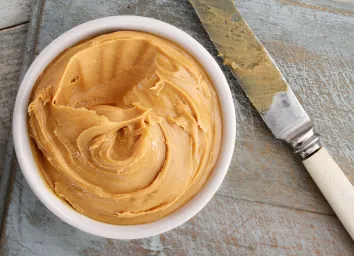Warning Signs You're Eating Too Much Peanut Butter
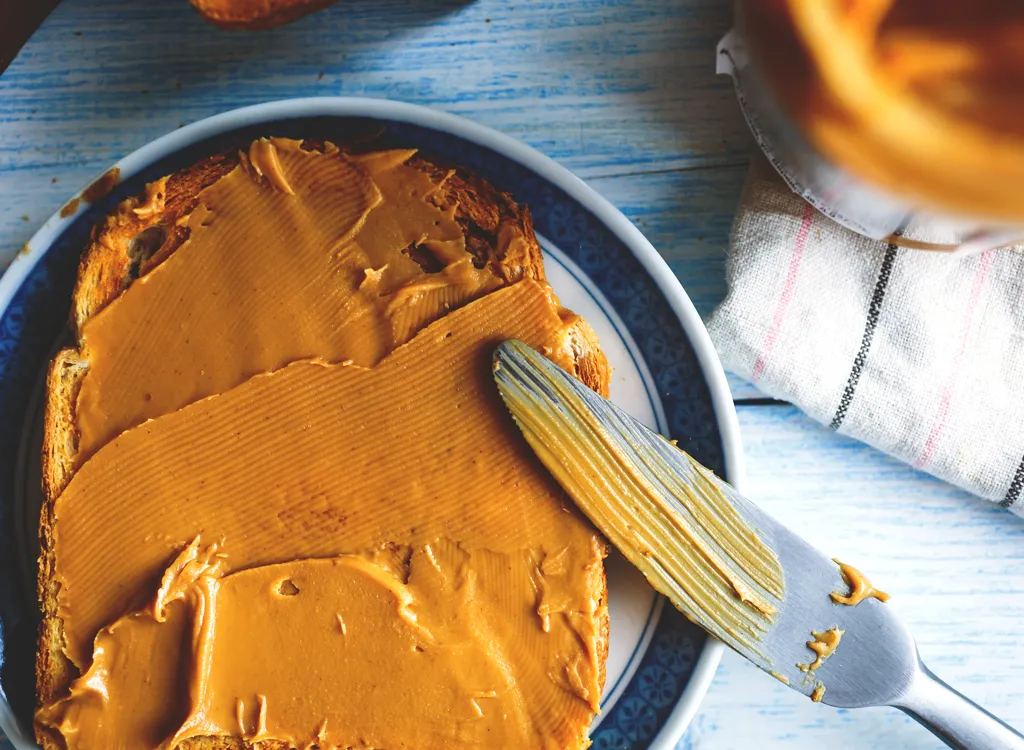
When you need to whip up a quick sandwich or just have a fun and delicious way to sneak some extra protein into your diet, nothing hits the spot like some peanut butter. Everyone has come to love this spread, and we have found it goes great in dips, on top of desserts, and even makes its way into a ton of recipes thanks to its ease to cook with.
While this amazing spread livens up anything it touches, some downsides exist, especially if you eat too much. While a little peanut butter goes a long way and can supercharge your diet, consuming too much can pack your body full of unnecessary sugar, sodium, fat, and more, leading to some very unseemly health consequences.
To determine what actually happens if you dig too hard into that jar of peanut butter, we asked a handful of professional dietitians, nutrition experts, doctors, and more what side effects we should expect to see if we eat too much peanut butter.
Read on to learn which side effects can do a real number on our health, and for more helpful eating tips, check out our list of The 7 Healthiest Foods to Eat Right Now.
Hypertension
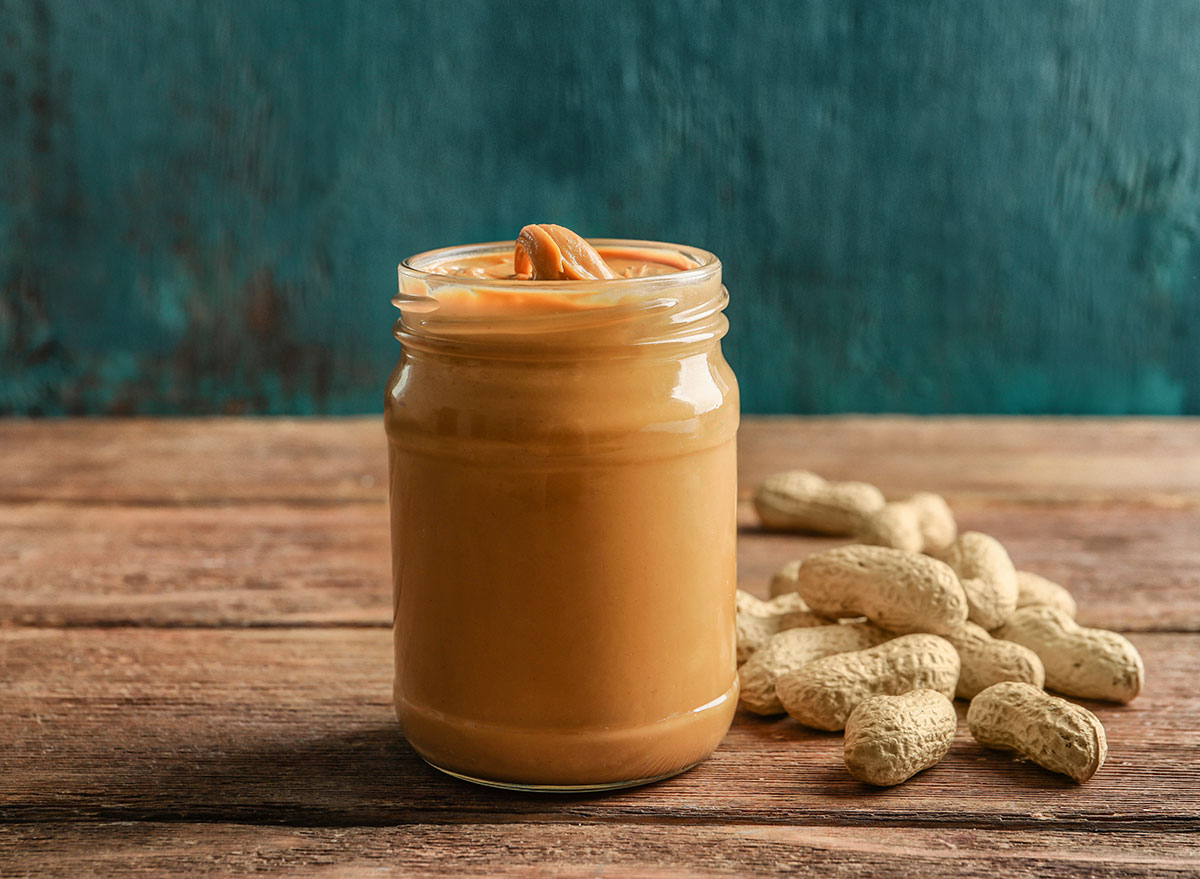
Commercial peanut butter contains a ton of additives, and when eaten together, can increase your chances of coming down with hypertension.
"Many mainstream brands of peanut butters are loaded with added sugars, salt, and hydrogenated oils," Shena Jaramillo MS, RD said. "This can potentially lead to hypertension if consumed in excess. Those with conditions such as diabetes should also be cautious of the sugar content in some of these mainstream brands of peanut butter."
"Many no-stir peanut butter brands even if labeled organic can contain a product called palm oil," Jaramillo continued. "This product acts like a saturated fat in the body and over time can lead to added weight gain and potentially hypertension. When choosing a peanut butter make sure it only has one single ingredient-peanuts. Natural peanut butter should separate. Consume in moderation."
Weight Gain
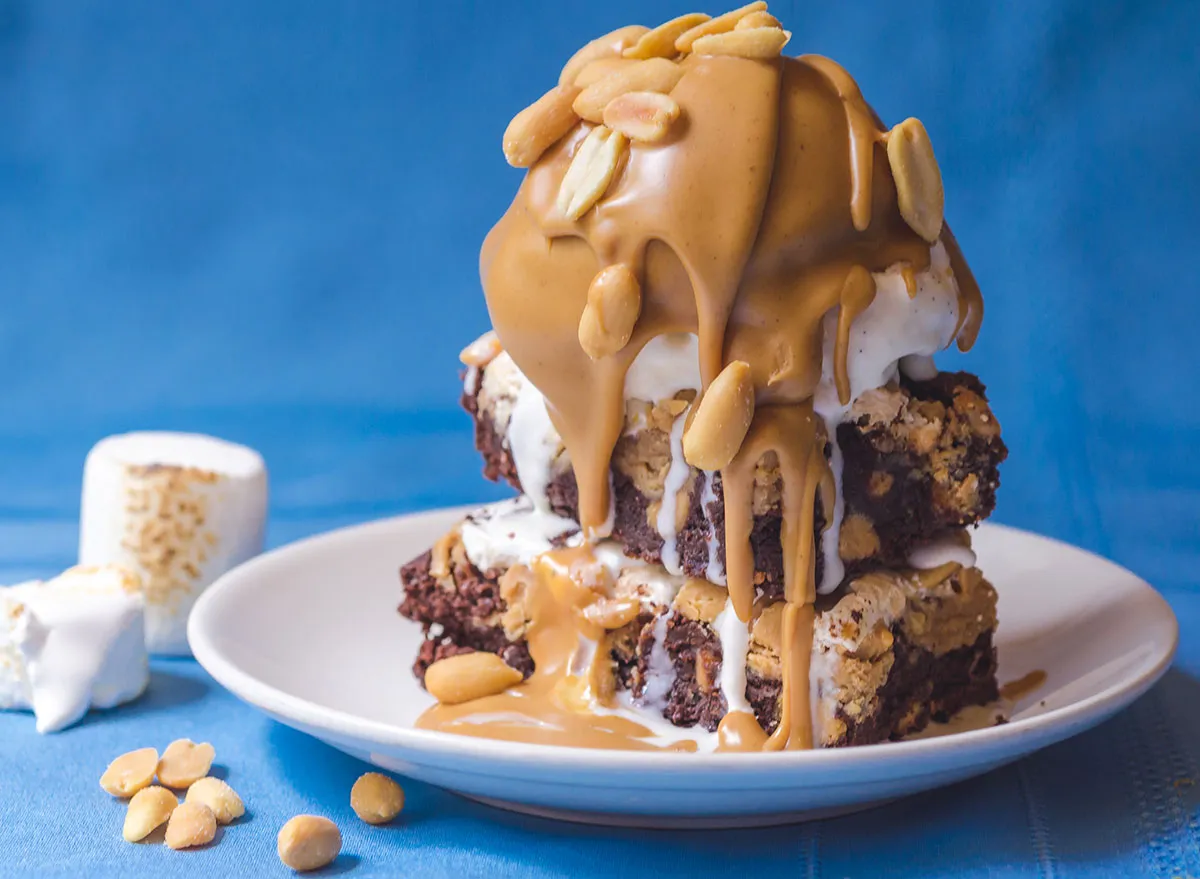
"Peanut butter, as well as other nut butters, are healthy in moderation and contain heart-healthy unsaturated fats along with some fiber, protein, and vitamins," Dr. Lisa Young, PhD, RDN and author of Finally Full, Finally Slim said. "However, there is too much of a good thing. Because it is mostly fat, it does contain a considerable amount of calories for a fairly small portion (around 100 calories per tablespoon.) Eating too much (which is easy to do) can lead to weight gain. Therefore, rather than scoop and eat it right from the jar, take 1 tablespoon and enjoy on bread or an apple."
When you want to indulge right, it's always easy to find a fun way to sneak some extra peanut butter into your day. Take your recipes to the next level by cooking at home and avoid all the added sugars with 30 Things You Can Make with Peanut Butter.
Acid Reflux

Even if you can avoid weight gain when you overdo it on the peanut butter, you might not avoid damaging the lining of your esophogus thanks to peanut butter causing acid reflux.
"Eating too much peanut butter can lead to the onset or irritation of generalized acid reflux disorder, otherwise known as GERD," Trista Best, MPH, RD, LD said. "Peanut butter is okay for those with GERD, but in moderation, as it is a relatively high-fat food."
"Peanut butter is also a significantly calorically dense food, meaning it provides the consumer with a lot of calories per serving," Best continued. "A standard serving size for peanut butter is 2 tablespoons equaling 190 calories for that small amount. It is best to eat this food in moderation and consider it a treat rather than a part of your regular diet."
Heart Disease
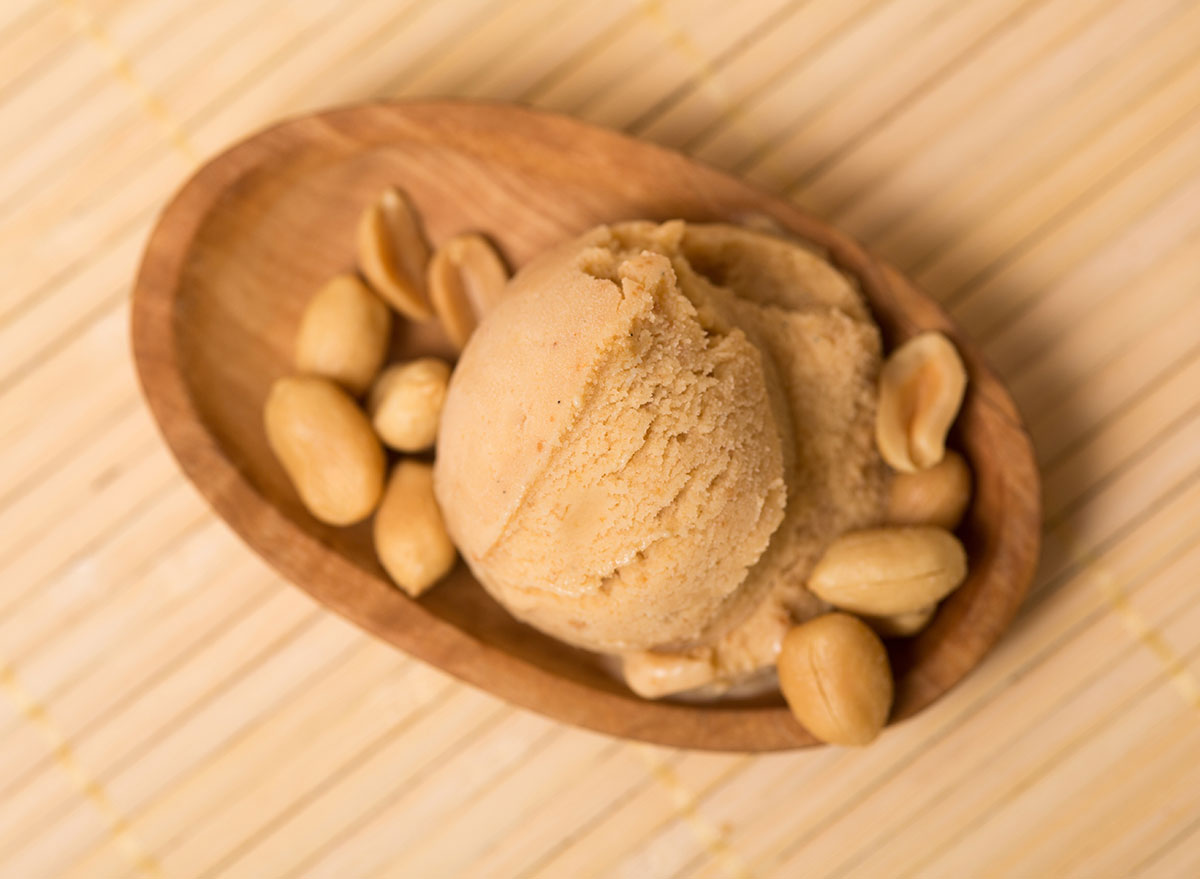
With so much oil packed into every serving, it makes sense that anyone could easily eat too much fat packed into peanut butter and risk a ton of heart-related diseases.
"Peanuts are legumes, [and] legumes are often known to cause bloating. Most peanut butter is made with palm oil which is high in saturated fats and also contains sugar," Heather Fowler CIHC, IWHC said. "Foods high in saturated fats, when eaten in large quantities over time could have negative [effects] on health such as high cholesterol, diabetes, and heart disease."
Neurological Disorders
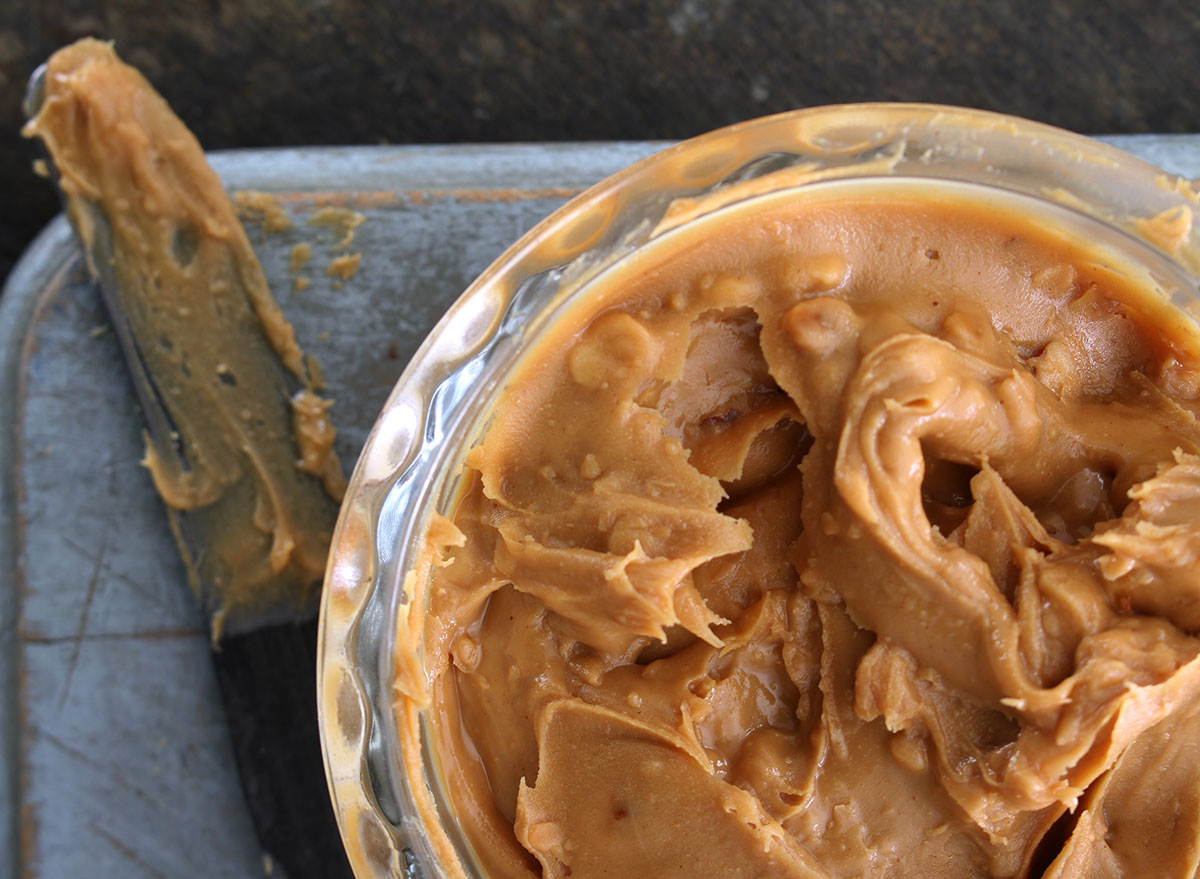
You may have never guessed, but too much peanut butter can put a ton of extra strain on your cognitive functions. But only depending on the type of peanut butter that is consumed.
"[Some] peanuts [could] contain a mycotoxin, especially during storage, called aflatoxin," Dr. Becky Campbell said. "Mycotoxins can be harmful to all systems of the body, especially our neurological system. High amounts of this neurotoxin can cause negative physiological effects to occur like chronic fatigue, ADHD, depression and in extreme cases Parkinson's and dementia."
According to the National Cancer Association, aflatoxin is a certain fungus found on agricultural crops such as corn, peanuts, cottonseed, and tree nuts, which studies have proven to be true. If a plant product is contaminated with this fungus, it could cause health issues. However, the USDA tests food that may contain aflatoxins (like peanut butter) and because of their testing, no outbreak or illness has occurred.
Needless to say, unless you are eating peanut butter made from contaminated peanuts, this shouldn't be an issue to worry about. But it is something to keep in mind if you ever decide to consume homemade peanut butter without evaluating the peanuts—and eating too much of that peanut butter in one sitting.
Indigestion
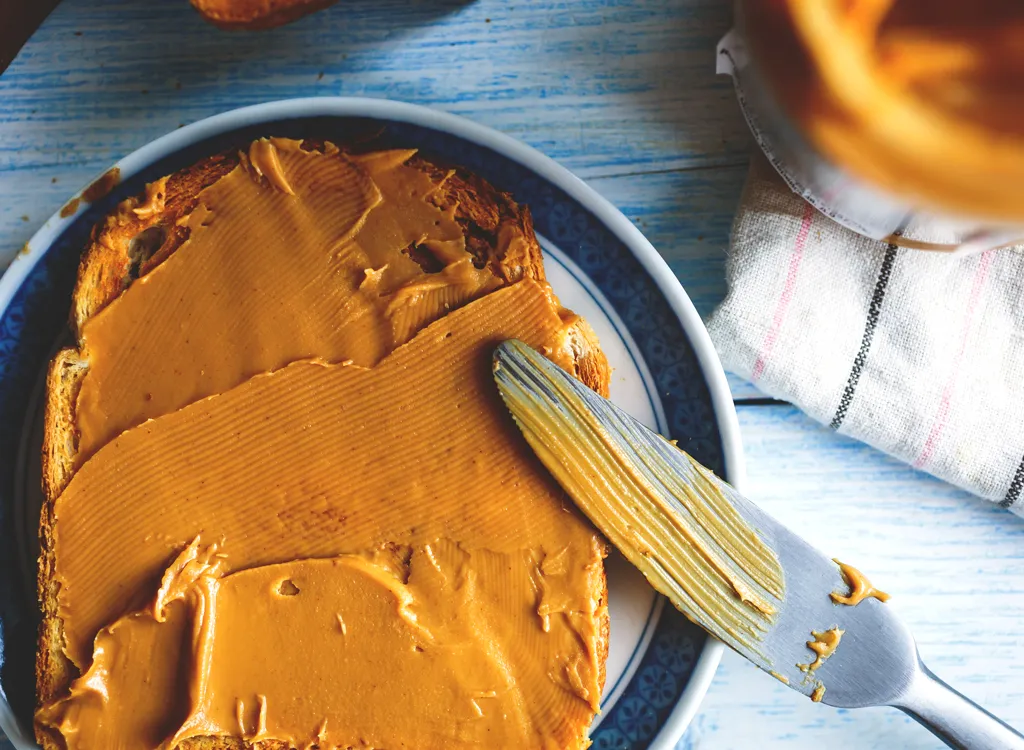
While it doesn't sound threatening off the cuff, indigestion caused by too much peanut butter can do real damage to your body.
"Eating too much peanut butter in a short time frame can cause people to become more constipated or have stomach aches due to the high amount of fat in a short time frame," Alicia Galvin, RD said. "Fat takes longer to digest and absorb, and peanut butter is mostly fat, so having too much can tax the digestive system."
When you need to stick to a tight diet or just want to avoid unnecessary health complications, stray away from the dangerous side effects too much peanut butter can lead to. As long as you eat the spread in moderation, have no worries—just stay vigilant for any of these repercussions.
To learn which peanut butter to enjoy in moderation, check out The 20 Top Peanut Butters—Ranked!.
